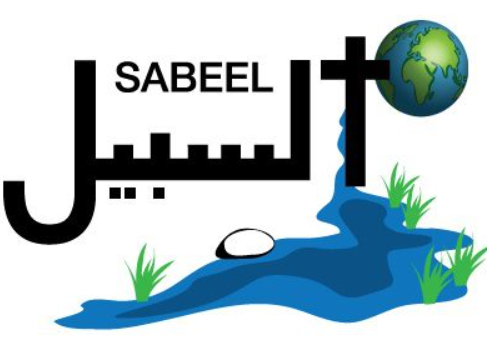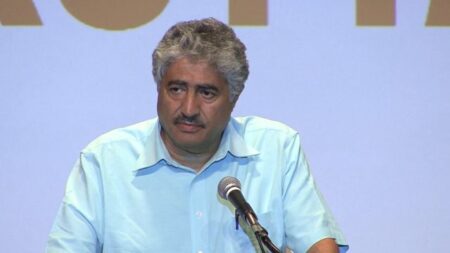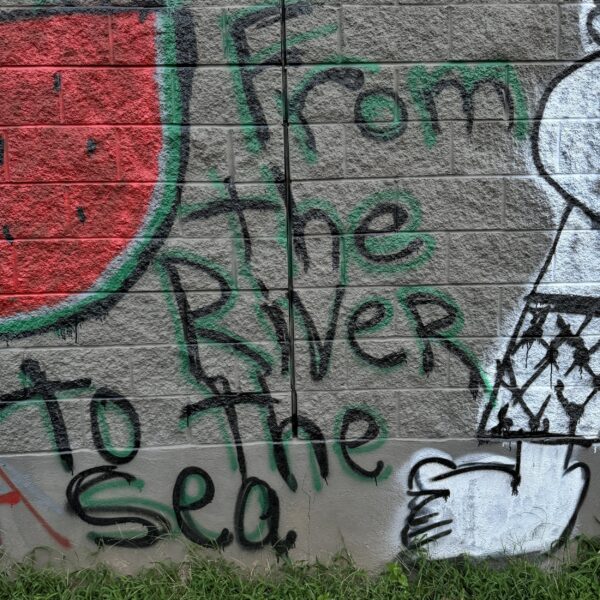By Jonathan Kuttab – Sabeel: It is outrageous, in the midst of an ongoing genocide where each day brings news of more tragedies and horrors, that we would have the luxury of addressing “final status” solutions. But, since we are always being asked what we want and how we envision the outcome, it may be worthwhile to address this question—even if the immediate task is to stop the genocide, achieve a ceasefire, release the hostages and prisoners, lift the siege of Gaza, and begin the process of rebuilding.
The often misunderstood phrase, “From the River to the Sea,” refers to a solution that addresses the entirety of the Palestinian homeland. For a time, after the 1967 War, many people believed in the possibility of a two-state compromise, whereby Palestinians would abandon their claims to 78% of historic Palestine in return for an independent state in the areas occupied in 1967, namely the West Bank (including East Jerusalem) and Gaza.
This “Two-State Solution” (aka land for peace) was a Grand Compromise that was supposed to put an end to the occupation and the conflict, allowing for a pragmatic outcome that would not challenge the basic tenets of either Zionism or Palestinian Nationalism. Those who rejected this compromise or raised fundamental questions were labeled extremists uninterested in peace. This was indeed the premise of the Oslo peace process, and the agreements signed at that time were intended to create progress towards such a goal.
 Since then, however, and especially after the assassination of Prime Minister Rabin, this process has been thoroughly undermined by an extensive expansion of Jewish settlements in the areas intended for Palestinian statehood.
Since then, however, and especially after the assassination of Prime Minister Rabin, this process has been thoroughly undermined by an extensive expansion of Jewish settlements in the areas intended for Palestinian statehood.
At the same time, right-wing elements achieved the passage of a number of laws and actions that emphasized the exclusive “Jewishness” of the state of Israel, rolling back any pretense of equality for Palestinian citizens of Israel. Administrative and legal changes, as well as facts created on the ground, made such a two-state solution no longer possible.
Meanwhile, Israeli politicians, political parties, and leaders made it very clear they would never tolerate a Palestinian state, and actions for effectively annexing the territories were continuously undertaken.
I myself wrote a little book on the subject, Beyond the Two State Solution, where I described this process and offered a new vision for a solution covering all of Palestine that addresses the needs of both groups within a single state that meets the core needs of all peoples, minus exclusivity. It calls for a solution based not on domination by one group or the exclusion of a numerical minority.
So, when I (and many others) speak of a single state “from the (Jordan) river to the (Mediterranean) Sea,” we do not speak in any way of eliminating Jews or Israelis from those areas, but of a new paradigm recognizing the truth that only one state currently exists between the river and the sea, an apartheid state which is neither democratic nor free. We express the hope and the goal to make the entire region free. Not just the areas occupied in 1967, but all of Palestine needs to be free:
Free from injustice, oppression, or domination by any group, From the River to the Sea
Free from racism, bigotry, discrimination, and Jewish (or Arab) supremacy, From the River to the Sea
Free for people to participate in democracy and free equal elections, From the River to the Sea
Free to return to their homeland (whether you call it aliya or awdah) and not live as refugees or stateless people, From the River to the Sea
Free to live anywhere in the entire land and to move about freely, without walls, checkpoints, permits, or roadblocks, From the River to the Sea
Free to practice one’s religion or no religion without coercion or persecution, From the River to the Sea
Free to thrive and pray and worship and develop one’s culture, language, and customs with mutual respect and tolerance, From the River to the Sea
Free from oppressive government censorship or arbitrary detention, From the River to the Sea
Free and truly democratic, with a free press, an independent judiciary, a proper constitution guaranteeing basic rights to all individuals and minorities against the whims of a fickle majority and regardless of changing demographics, From the River to the Sea
You may think this goal is utopian, sort of like “the lamb lying with the lion, and a little child shall lead them.” So be it. This is what I want, and it is what I believe in.
Free Palestine: From the River to the Sea.
 Jonathan Kuttab: In addition to being a co-founder of Sabeel, Jerusalem, Jonathan is a co-founder of the Palestinian human rights group Al-Haq and co-founder of Nonviolence International. A well-known international human rights attorney, Jonathan practices in the US, Palestine, and Israel.
Jonathan Kuttab: In addition to being a co-founder of Sabeel, Jerusalem, Jonathan is a co-founder of the Palestinian human rights group Al-Haq and co-founder of Nonviolence International. A well-known international human rights attorney, Jonathan practices in the US, Palestine, and Israel.
He serves on the Board of Bethlehem Bible College and is President of the Board of Holy Land Trust. Jonathan was the head of the Legal Committee negotiating the Cairo Agreement of 1994 between Israel and the PLO.
After graduating with his Doctor of Jurisprudence (JD) from Virginia Law School, and practicing for a couple of years on Wall Street, Jonathan returned home to Palestine.
Jonathan was a visiting scholar at Osgoode Law School at York University in Toronto in the Fall of 2017 and is a founding director of Just Peace Advocates Mouvement pour une Paix Juste, a Canadian-based international law human rights not-for-profit organization.
Jonathan is a resident of East Jerusalem and is a partner of Kuttab, Khoury, and Hanna Law Firm in East Jerusalem. He is the author of Beyond the Two-State Solution, suggesting that any solution be predicated on the basic existential needs of the two parties. His latest book is “The Truth Shall Set You Free: The Story of a Palestinian Human Rights Lawyer Working for Peace and Justice in Palestine/Israel”
Friends of Sabeel North America (FOSNA is a trans-denominational Christian organization seeking justice and peace in the Holy Land through education, advocacy, and nonviolent action.
FOSNA promotes the vision of Sabeel Jerusalem, an ecumenical liberation theology movement founded by Palestinian Christians in the Holy Land, joining Friends of Sabeel chapters around the world. As a nonprofit organization in the United States, we amplify the voice of Palestinians by advocating in churches, communities, and governments for justice, peace, and liberation in Palestine.

